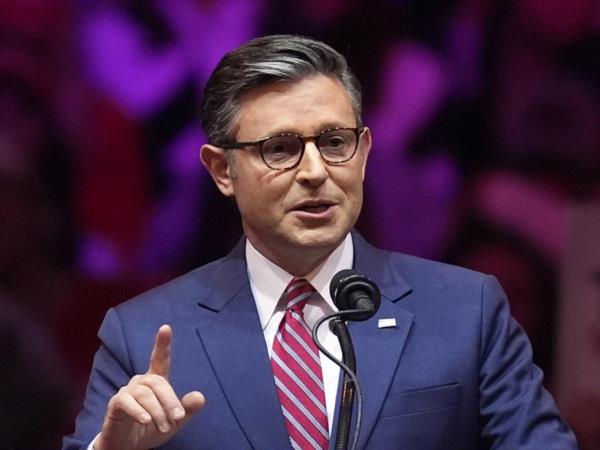
Republican Representative Thomas Massie of Kentucky has emerged as the sole dissenting voice against House Speaker Mike Johnson, expressing his belief that if one more member joins him in voting against Johnson, it could lead to a cascade of opposition in subsequent rounds of voting. Massie shared his perspective during an interview on 'The Glenn Beck Program,' where he highlighted the dynamics at play in the political landscape.
Massie indicated that he sees a high likelihood of Johnson ultimately securing the speakership, despite reservations from some members about his suitability for the role. He suggested that the political environment, often characterized as a 'swamp,' could influence the outcome of the vote, with members potentially aligning with Johnson even if they harbor doubts about his leadership.
Referring to the potential impact of additional dissenting votes, Massie predicted a scenario where Johnson could face increasing opposition in subsequent rounds of voting, potentially leading to a situation where even President Trump might intervene to prompt Johnson to step aside.



While Trump has publicly endorsed Johnson, Massie hinted at the possibility of a shift in support if Johnson's position becomes untenable. He mentioned the prospect of alternative candidates emerging as viable options for the speakership, suggesting that there are at least three individuals who could be considered for the role.
Despite declining to name specific candidates he would support, Massie emphasized his commitment to remaining engaged in the process and indicated his intention to continue participating in discussions over the weekend and into the following week. He underscored his reluctance to publicly endorse candidates, citing concerns about potentially influencing the outcome through his public statements.
In challenging the notion that Johnson is the only viable candidate for the speakership, Massie raised questions about the prevailing narrative that Johnson enjoys unanimous support within the Republican ranks. He emphasized the need for a broader consideration of potential candidates and suggested that the current dynamics could evolve in unexpected ways as the voting process unfolds.







